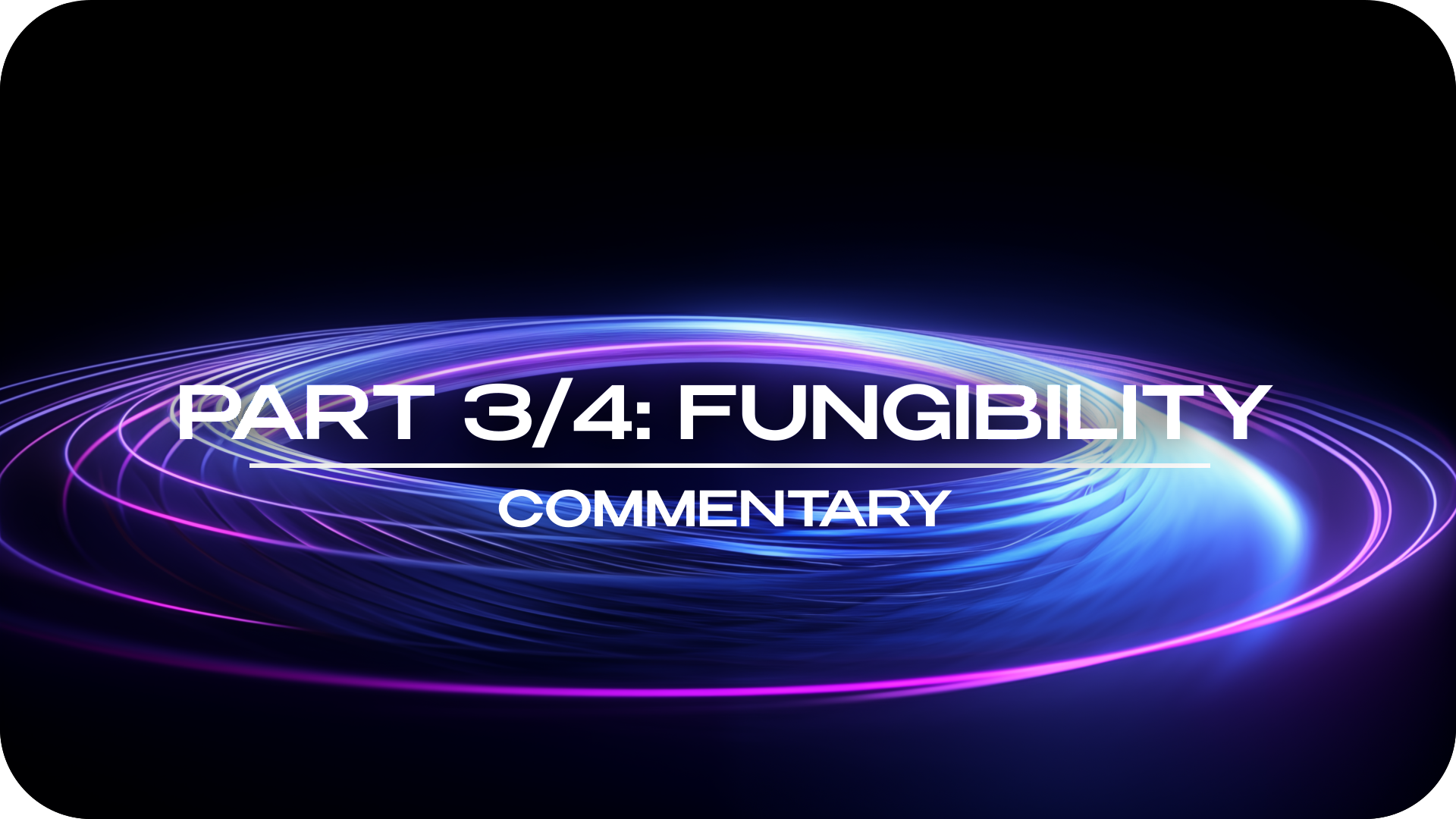
Making the Case for Mimblewimble and MWC: Part 3 - Fungibility
This is part 3 of the 4 part series "Mimblewimble/MWC" about fungibility.
In part 1, we covered scalability. In part 2, we covered privacy. In part 3, we covered fungibility. In part 4, we tie them all together.
Understanding Fungibility
Today's topic is fungibility. Fungibility really builds off of our last article on privacy. So, what is fungibility? In economics, fungibility is the property of a good or a commodity whose individual units are essentially interchangeable, and each of its parts is indistinguishable from another part.
Bitcoin's Fungibility Problem
As mentioned in past articles, Bitcoin's biggest weakness, with respect to being a good form of money, is fungibility. The problem is that all Bitcoins can be traced to their initial transaction when they were mined. This leads to things like "dirty" Bitcoins or Bitcoins that have been sent to darknet markets in the past. I have heard of cases of "dirty" Bitcoins being sold for a 15% discount, and I have heard of freshly mined Bitcoins being sold for a premium of up to 15%. That doesn't make for a very good money. Good money would be interchangeable, and no one would care whether it's "freshly mined" or "dirty". It's just money. To a large extent, I question how much Bitcoin can grow until this issue is resolved.
Mimblewimble: A Solution to Fungibility
Luckily, there is a solution. All Mimblewimble transactions are indistinguishable from one another. The public blockchain has no amounts and no addresses. So much so that the blockchain data pretty much looks like a bunch of gibberish. There's just no data about which addresses are sending amounts to which other addresses. While some methods of tracing may exist, they definitely require much more sophistication than is the case with Bitcoin, and there are workarounds that can be implemented to combat those cases as well. The reason Mimblewimble blockchains are hard to trace and are thus more fungible is because there are no addresses and amounts are encrypted. To the casual observer, it just looks like a bunch of random data. Only the individual parties know the amounts of the transactions. This leads to an objectively better money.
The Community's Response
Given this information, it's really amazing to me that more Bitcoin holders are not talking about this. Until Mimblewimble chains became a reality, the only option was to use Zcash or Monero. We've discussed extensively how Zcash's opt-in privacy doesn't improve fungibility at all because very few transactions actually use the privacy capabilities available, and while Monero is fungible, the size of the transactions is so enormous that it's hard to imagine it working at scale. Unlike the two previously existing options, Mimblewimble scales (actually better than Bitcoin even). Objectively speaking, Mimblewimble-based blockchains may end up being the best money ever created due to this near-perfect fungibility at scale.
Privacy Coins Misconception
There's this misnomer that "privacy coins" are all about buying drugs online and other illicit activity, but really the bigger issue is fungibility. Money really can't be good money without being fungible. We'll leave this as a short article since it's really all just very obvious that a blockchain with all amounts encrypted and no addresses is clearly going to be much more fungible than a legacy blockchain. The next and final article in the series will tie all of this together and make the case for Mimblewimble and MWC.



